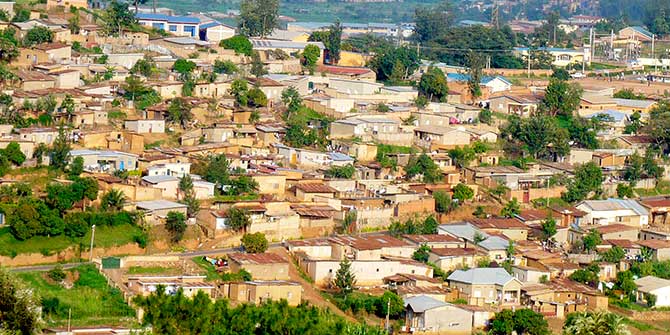Outdated taxation laws are being rewritten, and the government hopes this will raise more money to spend on vital services. But as Bankolay Theodore Turay writes, the changes must be transparent and clearly communicated.
The government of Sierra Leone is reforming property tax in the capital city of Freetown. This initiative, under the banner of “Land Base Financing,” aims to reform property taxation in the city to be fairer and more transparent. It represents a significant shift in how the government generates revenue and strengthens land rights for citizens. For years, Freetown’s property tax system was outdated and unfair. The tax was based solely on land area, meaning a small shack with a garden could be taxed the same as a luxurious multi-story mansion. This placed a heavy burden on low-income residents and did little to generate revenue for critical services.
Fair property taxation
The new property taxes are based on the value of the land, not just its size. This means those with more valuable properties pay a larger amount. By basing the tax on property value and implementing a transparent system, the government will achieve a fairer tax structure. The increased revenue can then be directed towards improving essential services for citizens.
Fair property taxation is a continuous process that requires ongoing evaluation and adjustments. By focusing on equity, efficiency, and transparency, the government can create a system that benefits all citizens and fosters a stronger and more stable community. A land administration system enables the collection of property tax in a fair way. The role of location-based information becomes evident. For the accurate valuation of land or real estate and the collection of property tax, the government needs to have information about the land’s characteristics, the entities holding land rights, and addresses.
A proper and reliable land administration provides important information for fair property taxation and can lead to higher income based on taxation. On the other hand, if such data is missing, property taxation provides an incentive to start collecting information on land rights, which leads to better tenure security.
Communicate and be transparent
A new system to facilitate property valuation, billing, and payment tracking to enhance support for collecting tax, is key for the government to be transparent about how money will be spent and how citizens benefit. Providing land titles is a clear and tangible benefit and supports trust between the government and its inhabitants.
There are examples of property taxation from other African countries, such as Ethiopia, Mozambique and Benin. Currently, with support from donors, the governments of Mozambique and Benin have supported local governments to improve land surveying, registration, and the collection of property tax at the local level. As a result, there was a steep uptick in tax collection in these countries in a short period of time. Data collection and storage of ownership is sped up by using new technology like GIS (that creates maps) and satellite imagery, while also working on the legal registration of rights. The Sierra Leone government can take a cue from such initiatives by prioritising transparency that can build trust with its citizens and ensure the Land Base Financing initiative is implemented effectively. It is crucial that concise and clear information is provided on the new system to citizens. This could involve town hall meetings, informational pamphlets, and public service announcements. Publishing property valuation data and tax calculation methods online or in easily accessible locations empowers citizens to understand their tax bill.
Building trust
Building trust between local governments, multinational partners, government entities and citizens is key to success in the long run. These combined efforts are effective if there is clear communication on how the tax regime will be implemented without cumbersome bureaucracy. The long-term benefit of paying taxes will lead to a clear path to legal ownership of citizen’s properties. Legal ownership increases access to loans, provides protection against local malpractices by, for example, real estate developers, land grabbers, and supports an open land market.
It’s important to establish hotlines or online portals for citizens to ask questions and raise concerns about property valuations or the tax collection process to foster trust. Providing detailed information on how property values are determined allows citizens to understand the reasoning behind their tax bill. This will also guarantee citizens the right to access property valuation data to ensure a level of accountability and reduce the risk of errors or bias. Furthermore, the government should establish a clear and fair appeals process that allows property owners to challenge inaccurate valuations, promoting trust in the system.
While the new system holds significant promise, challenges remain. Educating citizens about the reforms and ensuring fair and efficient property valuation are crucial steps. Additionally, building trust and transparency in the tax collection process is essential for long-term success. Building further on the relation between land rights, tenure security, geodata infrastructures and property taxation.
Photo credit: Jessica Mulley used with permission CC BY-NC-ND 2.0 DEED





This is such great good news! I am administrator for the International Union for Land Value Taxation and our executive council would like to be in touch with both the author of this article as well as relevant public officials in Freetown. Please respond to me thank you.
Most economists will applaud (from both an efficiency and fairness perspective) the government’s commitment to value land for purposes of annual taxation. Land values are directly related to the quality of public goods and services brought to a location. At the same time, the buildings constructed at a location are depreciating assets that require ongoing expenditures for maintenance; then, every decade or so, the building owner must spend huge amount on systems replacement. Thus, the ideal rate of taxation on the value of a building is zero. With respect to land, the optimum amount of tax to be paid should be as close as possible to the potential annual rental value of a location. Economic theory tells us that as the amount of tax imposed comes closer to this rental value, the selling price for land will fall and fall. Thus, the assessment system must be changed from capital (i.e., sales) value to rental value.